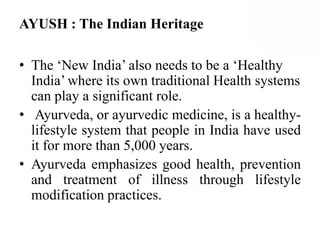Introduction
Anxiety is a mental health challenge that affects individuals of all ages and backgrounds. According to Ayurveda, anxiety often stems from an imbalance in the Vata Dosha, which governs movement, communication, and the nervous system. In this ancient system of medicine, anxiety is not merely seen as a psychological issue; rather, it is a holistic disturbance that involves the mind, body, and spirit. Fortunately, by focusing on natural remedies and aligning with the body’s rhythms, you can effectively manage anxiety in Ayurveda.
Understanding the Causes of Anxiety in Ayurveda
In Ayurvedic philosophy, the Vata Dosha is closely associated with wind and movement. When Vata becomes unbalanced, it triggers excessive worry, overthinking, and fear, leading to anxiety. Several factors contribute to this imbalance, including irregular eating habits, a fast-paced lifestyle, exposure to cold and windy environments, and a lack of proper rest. Recognizing these factors enables individuals to take proactive steps to restore balance.
How to Recognize Vata Imbalance and Its Connection to Anxiety
You can identify symptoms of Vata imbalance that often correlate with anxiety, such as:
- Restlessness and nervous energy: This can manifest as fidgeting or an inability to sit still.
- Difficulty concentrating or making decisions: Many individuals experience mental fog during anxious episodes.
- Insomnia or irregular sleep patterns: A disrupted sleep cycle often worsens anxiety.
- Feelings of insecurity and fear: These emotions frequently accompany heightened anxiety levels.
By understanding these symptoms, you can recognize when Vata Dosha is out of balance and take corrective action through Ayurvedic practices. Explore Ayurvedic lifestyle practices for balance here.
Ayurvedic Remedies for Managing Anxiety
Herbal Remedies to Calm the Mind and Body in Ayurveda
Ayurveda offers a diverse range of herbal solutions to address anxiety by calming the nervous system and grounding Vata. Here are some key herbs that support anxiety in Ayurveda:
- Ashwagandha: This powerful adaptogen reduces cortisol (the stress hormone) levels, promoting a sense of calm.
- Brahmi (Gotu Kola): Known for its cognitive benefits, Brahmi enhances mental clarity and alleviates anxiety and stress.
- Jatamansi (Spikenard): Revered for promoting relaxation and restful sleep, Jatamansi is an excellent choice for anxiety relief.
- Shankhpushpi: This herb enhances brain function while reducing mental fatigue, stress, and anxiety.
Dietary Guidelines to Balance Vata Dosha and Alleviate Anxiety
In Ayurveda, food serves as medicine, meaning what you eat can significantly influence your mental state. For effective anxiety management, it is crucial to follow a diet that balances Vata Dosha:
- Warm, moist foods: Incorporating soups, stews, and cooked grains helps ground Vata and provides comfort.
- Healthy fats: Foods like ghee, sesame oil, and avocados nourish the body and soothe the mind.
- Avoid stimulants: Reducing caffeine, alcohol, and refined sugar can prevent overstimulation of the nervous system, which often exacerbates anxiety.
- Herbal teas: Drinking teas made from chamomile, tulsi (holy basil), or licorice root offers calming effects and supports relaxation.
Lifestyle Practices to Reduce Anxiety in Ayurveda
Establishing a Daily Routine (Dinacharya) for Anxiety Relief
Ayurveda emphasizes following a regular daily routine to promote balance in the body and mind. Implementing a Dinacharya for managing anxiety can include:
- Waking early: Rising with the sun creates a calm and structured start to your day.
- Meditation: Practicing mindfulness or guided meditation for 10-15 minutes daily helps clear mental clutter and calms the mind.
- Gentle Yoga: Incorporating slow, grounding yoga poses like Child’s Pose, Forward Bends, and gentle stretches helps release physical and emotional tension.
- Abhyanga (Self-Massage): Regular self-massage with warm oils such as sesame or almond oil calms the nervous system and reduces anxiety.
Breathing Exercises (Pranayama) for Managing Anxiety
Ayurvedic breathing techniques, or Pranayama, serve as powerful tools for anxiety management. Nadi Shodhana (Alternate Nostril Breathing) is particularly effective for balancing the mind and calming the nervous system. Practicing this simple breathing exercise for just 5-10 minutes each day can significantly reduce anxiety levels and improve focus.
Restorative Practices for Emotional Balance in Ayurveda
In Ayurveda, emotional well-being closely relates to physical health. In addition to herbs and diet, restorative practices can effectively manage anxiety:
- Journaling: Writing down worries and thoughts provides a therapeutic outlet for releasing pent-up emotions.
- Spending time in nature: Engaging in activities like walking barefoot on the earth or sitting outdoors calms the mind and grounds Vata energy.
- Aromatherapy: Using essential oils such as lavender, sandalwood, and vetiver creates a calming atmosphere, reducing anxiety and promoting relaxation.
Conclusion
Anxiety in Ayurveda represents not only a mental condition but also a signal of imbalances in the body and mind. By addressing these imbalances through herbal remedies, dietary changes, and lifestyle practices, Ayurveda offers a holistic and natural approach to anxiety relief. Whether through calming herbs like ashwagandha, soothing self-massage, or a nourishing Vata-balancing diet, these Ayurvedic practices empower you to regain a sense of balance and inner peace. Learn more about the effectiveness of Ayurveda in mental health from the National Center for Complementary and Integrative Health here.



2 thoughts on “Anxiety in Ayurveda: Natural Remedies for Relief and Balance”